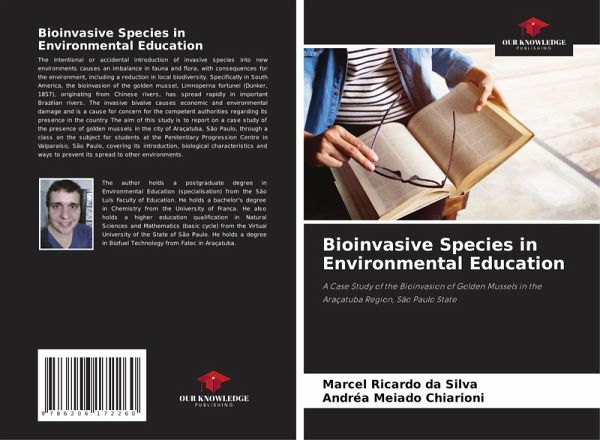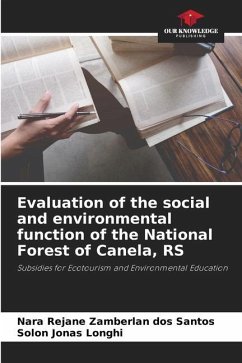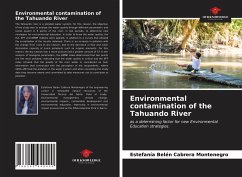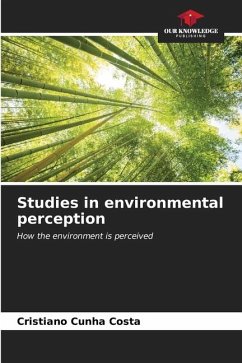
Bioinvasive Species in Environmental Education
Versandkostenfrei!
Versandfertig in 6-10 Tagen
24,99 €
inkl. MwSt.

PAYBACK Punkte
12 °P sammeln!
The intentional or accidental introduction of invasive species into new environments causes an imbalance in fauna and flora, with consequences for the environment, including a reduction in local biodiversity. Specifically in South America, the bioinvasion of the golden mussel, Limnoperna fortunei (Dunker, 1857), originating from Chinese rivers, has spread rapidly in important Brazilian rivers. The invasive bivalve causes economic and environmental damage and is a cause for concern for the competent authorities regarding its presence in the country. The aim of this study is to report on a case ...
The intentional or accidental introduction of invasive species into new environments causes an imbalance in fauna and flora, with consequences for the environment, including a reduction in local biodiversity. Specifically in South America, the bioinvasion of the golden mussel, Limnoperna fortunei (Dunker, 1857), originating from Chinese rivers, has spread rapidly in important Brazilian rivers. The invasive bivalve causes economic and environmental damage and is a cause for concern for the competent authorities regarding its presence in the country. The aim of this study is to report on a case study of the presence of golden mussels in the city of Araçatuba, São Paulo, through a class on the subject for students at the Penitentiary Progression Centre in Valparaíso, São Paulo, covering its introduction, biological characteristics and ways to prevent its spread to other environments.












